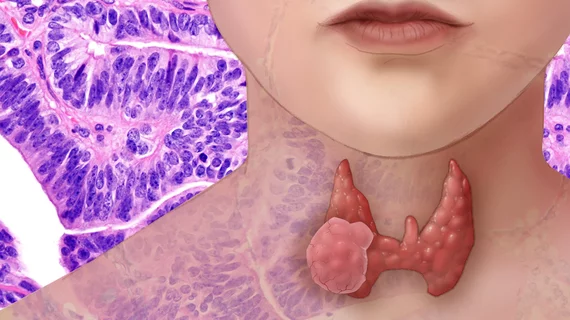Medical societies publish consensus document on iodine-131 therapy in thyroid cancer
Multiple medical societies, including the Society of Nuclear Medicine and Molecular Imaging (SNMMI), have published a joint statement for using radioactive iodine-131 therapy in thyroid cancers.
The document—published in Thyroid—outlines the Martinique Principles, a set of nine principles designed for the optimal management of thyroid cancer.
The principles help establish iodine-131 (RAI) therapy goals, define the role of postoperative disease status in RAI therapy decision-making, a recognition of inadequate evidence in using I-131 for adjuvant treatment and characteristics of RAI-refractory disease.
In 2015, the American Thyroid Association (ATA) published management guidelines for adult patients with thyroid nodules and differentiated thyroid cancer. Nuclear medicine societies, including those mentioned in this article were opposed to many of the recommendations outlining the diagnostic and therapeutic use of RAI therapy; and the European Association of Nuclear Medicine and SNMMI declined to endorse the ATA guidelines.
Then in 2016, leaders from the American Thyroid Association, the European Association of Nuclear Medicine, SNMMI and the European Thyroid Association met over a span of two days and produced the consensus Martinique Principles.
While the meetings and published principles are a positive step for thyroid cancer caregivers and patients suffering from the disease, there is still work ahead and more discussion needed before applying the principles to clinical practice.
“While the Martinique Principles provide a framework for many important management issues in DTC, ongoing discussions will be required to address many of the specifics that arise as one considers implementing these principles in clinical practice,” the statement read.
Read the entire set of principles here.

